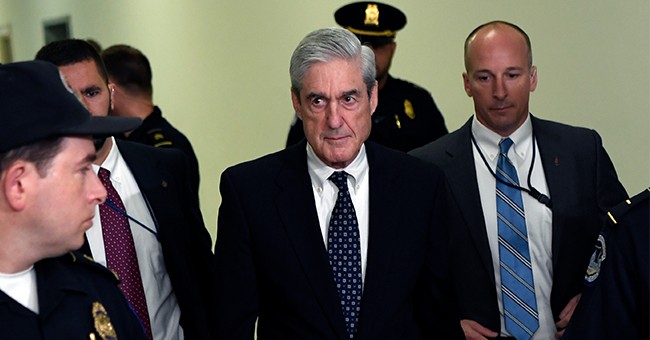Durham Target Kevin Clinesmith Wasn’t Working for Who You Think When He Forged That Email to Spy on Carter Page
One important fact getting overlooked in all the discussion of whether FBI Attorney Kevin Clinesmith’s guilty plea represents the sacrifice of a minor criminal so the ringleaders can escape justice or the beginning of the end for those who were running the show is exactly whose show
Clinesmith was a part of when the crime he’s admitted committing occurred.
You see, Clinesmith wasn’t working for James Comey on June 19, 2017, the date he altered that CIA email inconveniently identifying Trump’s onetime foreign policy advisor Carter Page as a trusted source.
By that point in time, Clinesmith was part of Robert Mueller’s Independent Counsel investigation.
And it was Mueller’s crew who made use of the illegitimately obtained renewal of the FISA warrant to spy on Page that Clinesmith’s willingness to commit forgery enabled.
On the recommendation of acting Attorney General, Rod Rosenstein, Trump had fired Comey on May 9, 2017. As a consequence, Comey’s second-in-command, Andrew McCabe automatically took over as acting director till June 7, when Trump appointed Christopher Wray. (Wray was interim director until his Senate confirmation on July 20.)
McCabe was in charge for less than a month. But within just 8 days he’d started a second investigation of Trump in addition to the still ongoing Crossfire Hurricane probe of his campaign’s ties to Russia.
Despite Trump’s having fired Comey at Rosenstein’s urging and the president’s authority to terminate the director of the FBI for any reason he pleases, McCabe wasted no time in using his boss’s dismissal as a pretext to investigate Trump for obstructing Crossfire Hurricane.
McCabe had previously helped tip over the very first domino that ultimately led to Robert Mueller’s appointment as independent counsel as well.
Though it hasn’t received nearly enough attention, he played a substantial role in ginning up the phony controversy over whether Jeff Sessions lied to Congress about his contacts with Russian ambassador Sergey Kislyak during his confirmation hearing.
Sessions takes a lot of heat for enabling the Mueller probe by recusing himself. But though there’s no question he made a disastrous unforced error, most people aren’t aware of the stuff going on in the background that almost seems like it could have been designed to make Sessions step aside and put Rosenstein in control.
A few months before starting that second investigation into whether Trump obstructed justice by taking Rosenstein’s advice, Andrew “Itchy Finger” McCabe had triggered another criminal investigation of Sessions for lying about his contacts with Kislyak at the request of Democratic Sens. Patrick Leahy and Al Franken.
The fuss about Sessions’ contacts with Kislyak quickly died down and Mueller closed the investigation in January 2018. But the ginned-up controversy did force Sessions to recuse himself; which put Rosenstein in a position to urge Trump to fire Comey; which then put McCabe in the position to start a second investigation of Trump for obstruction of justice for taking Rosenstein’s advice.
Within a matter of days, Rosenstein appointed Mueller Independent Counsel to take over both Crossfire Hurricane and McCabe’s second obstruction of justice investigation, which, being only a day or two old, never got baptized with a cool-sounding name.
Funny how things work out sometimes. If you didn’t know better, you might think making Mueller Independent Counsel was the result of some kind of plan.
Rosenstein later justified increasing the scope and power of both investigations by appointing Mueller to take them over as Independent Counsel by claiming he was “concerned that the public would not have confidence in the investigation and that the acting FBI director [McCabe] was not the right person to lead it.”
The event that would be at the center of Mueller’s investigation of Russian election interference, however, was Russia’s alleged hack of the Democratic National Committee’s computer network which supposedly netted the DNC emails WikiLeaks started publishing on July 22, 2016.

meanwhile hillary was supposed to testify in sept. toms fittons judical watch won in court but yesterday the appeals court said nope funny, 2 sotero and 1 bush judges. fittan was on tv not talking very highly of bar and durham. time will tell. that stuff on weiners labtop allegedly could take down the entire world. duck duck go weiners labtop you will be astounded then duck duck go the 12 high ranking police in new york you will be sick. Pray Alot and often God bless the patriots W W G 1 W G A
ReplyDelete